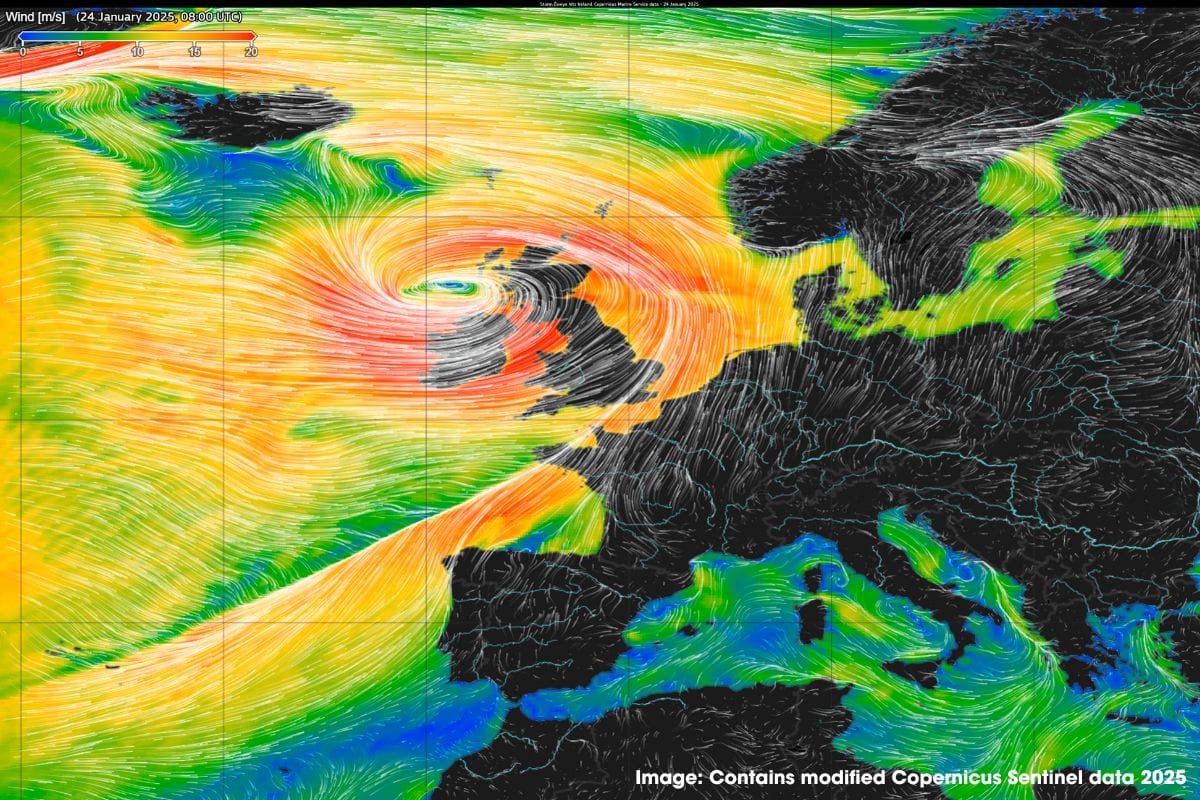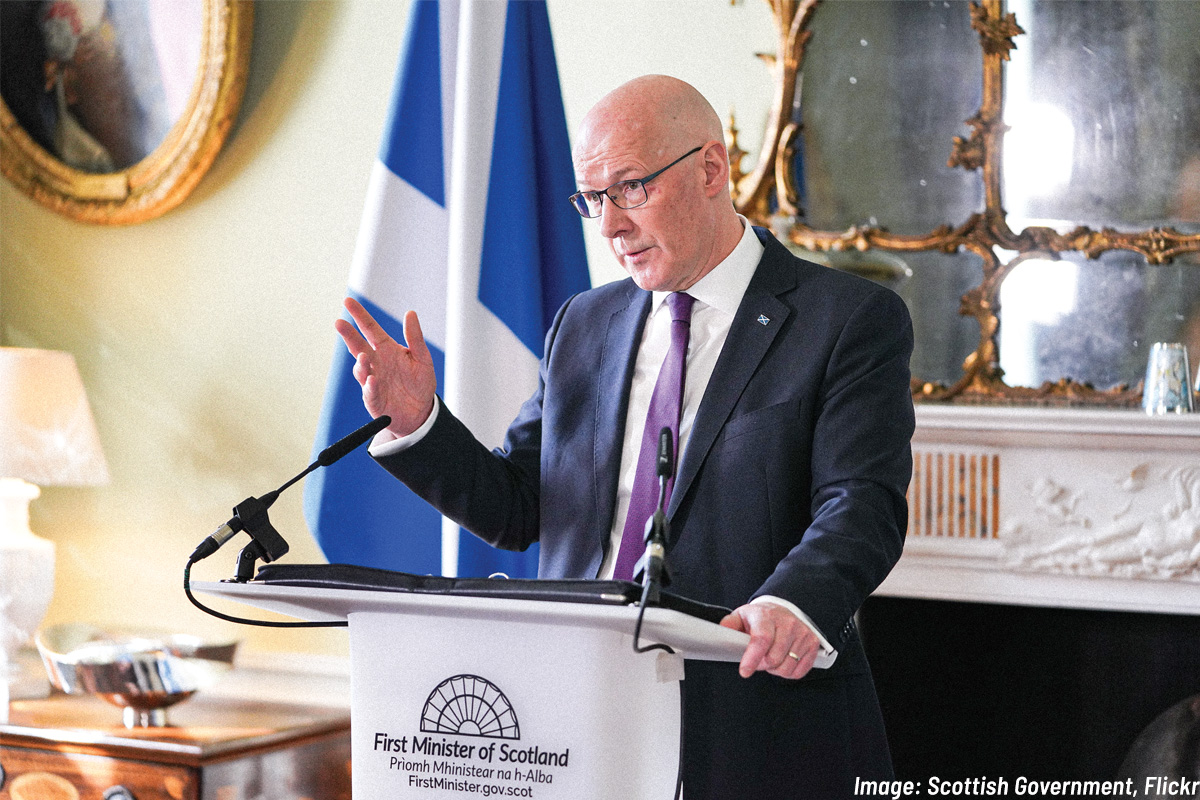The hurricane-speed winds brought by Storm Eowyn devastated much of Scotland, battering already crumbling infrastructure and leaving over 280,000 without electricity. Buildings had roofs and walls torn off, and hundreds of trees were felled, strewing railways and roads with debris.
With 2024 breaching the +1.5°C benchmark of global warming, and the North Atlantic weather system being affected by melting sea ice, there is little doubt that climate change has exacerbated this storm.
There is inevitably more to come. Bourgeois politicians like Scottish First Minister John Swinney pay lip service to the ‘warning’ being issued by events like this. But this alarm bell clearly isn’t one that he or the class he represents are willing to heed.
Following more than a decade of austerity, the UK is unable to maintain its current services and infrastructure, let alone adapt to a changing climate.
Network Rail, for example, has cut back maintenance by hundreds of millions, leaving tracks more vulnerable to damage by extreme weather.
Schools and public buildings – which are already known to be built out of shoddy materials such as RAAC concrete – have seen serious damage.
One school in Stirling has had to install new ‘external classrooms’ (i.e. sheds), as parts of the building are not safe to enter. Stirling Council, much like other councils across the country, is being forced to cut its budget by £28 million – a task that will involve repairs to damage that are as cheap as possible.
YouGov polling commissioned by Climate Barometer last year shows that only one sixth of people think that the UK is adapting well to climate change. Over three quarters (78 percent) say that the country isn’t prepared for the coming extreme weather, with floods being the main concern.
Last November, the head of the Environment Agency complained to MPs that its funding has consistently fallen short, especially on flood defences. As a result, 500 out of 2000 flood protection projects in England have been abandoned, leaving thousands of homes vulnerable to damage.
Nobody is buying the idea that everything’s under control. This creates the potential for explosive anger in the wake of climate disasters, such as was seen in Valencia last year.
It’s high time that people – not profits – were put in charge of the economy. This is the only way we can prepare ourselves for the havoc already created by the capitalist system, and stop the billionaire class driving us deeper into catastrophe.
Solidarity storm
Chris Double, Glasgow
Scarcely an inch of these isles went unaffected by January’s storms, Èowyn and Herminia, some of the most intense in recent memory, leading to loss of life in Scotland and Ireland.
Gusts were experienced in excess of 100mph, including the strongest on Irish records at 114mph. Hundreds of thousands throughout Britain and Ireland went without power, with tens of thousands still affected almost a week later. Travel was halted, as 1-in-5 flights were cancelled. Bus and train disruptions persist at the time of writing.
Despite red ‘danger to life’ weather warnings, some bosses still attempted to coerce workers to attend shifts under threat of disciplinary action. Others left employees without pay, despite last minute shift changes.
Unite Hospitality, a member-led trade union, urged workers to contact them and get organised – informing them of their rights under Section 44 of the Employment Rights Act 1996 to refuse to work if there is a serious, immediate threat to safety.
With the union receiving an “unprecedented level of engagement” from those in hospitality and retail jobs, it has been made clear to them “the complete disregard employers have for their safety and their unscrupulous aim to prioritise profits over people”.
When contacted for a statement, representatives of Unite Hospitality made clear that their priority in the aftermath of the storms is to offer support for those affected, through recovery of lost wages and compensation for damages where appropriate.
Such rapid mobilisation in the face of capitalist greed is a heartening, motivating example of power through collective action – especially in a sector that has been historically difficult to unionise.
As with our fellow workers in Los Angeles facing wildfires at phenomenal scale, we see disaster capitalism at its worst since the pandemic, more concerned with business as usual than ensuring the safety of staff or the wider community.
Solidarity along class lines will be essential in both our immediate response to particular events and in combating the greater issues at hand. With Met Office warnings of ‘storm clustering’ in the coming months, workers must take heed and stand together in the face of looming climate catastrophe.






